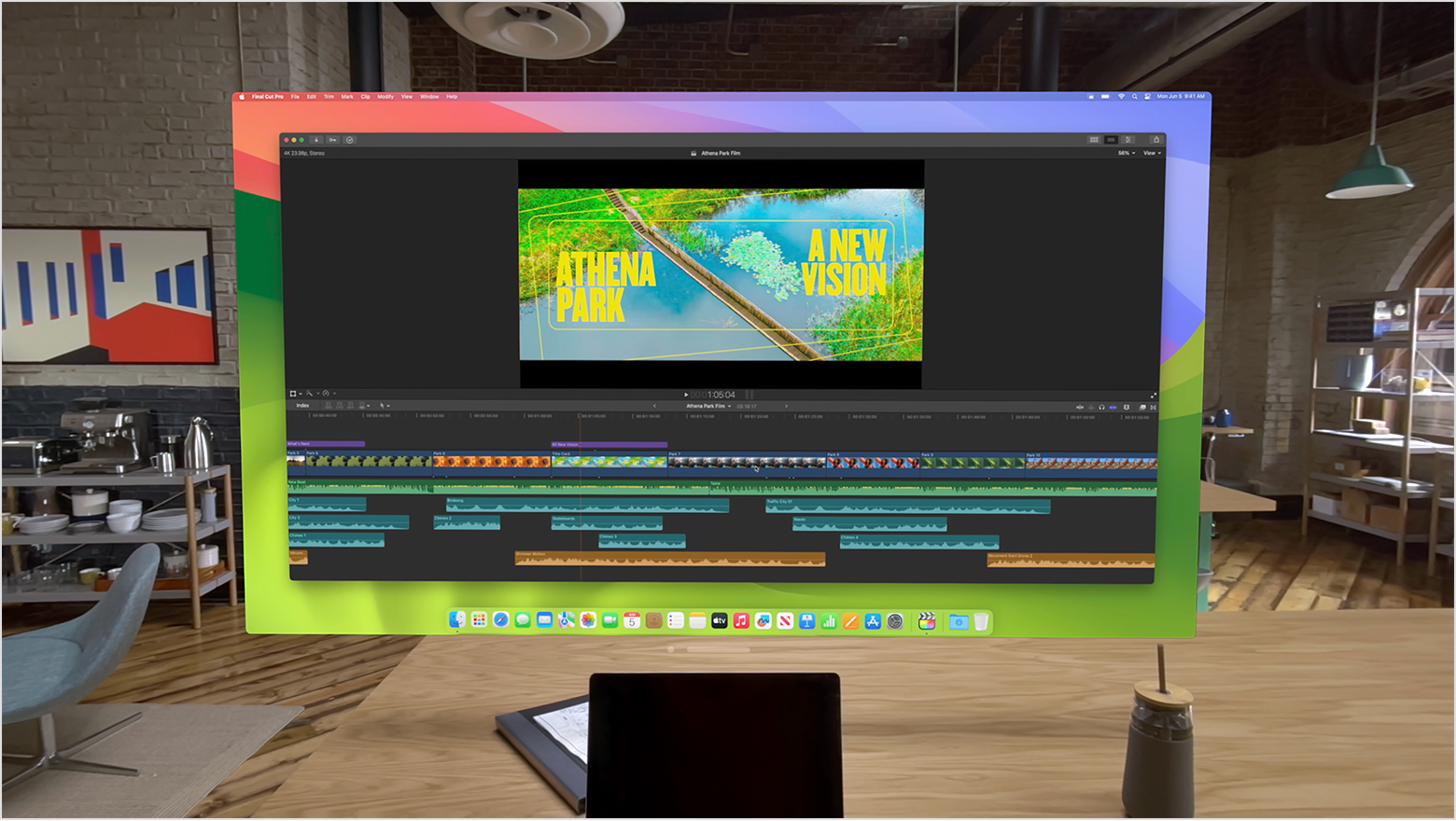Use your Mac with Apple Vision Pro
Learn how to use Apple Vision Pro as a private, portable 4K display for your Mac with Mac Virtual Display.

Before you begin
First, make sure your Mac meets the system requirements. You can use Mac Virtual Display with any Mac that has macOS 14 Sonoma or later.
Then, check these things on your Mac and your Apple Vision Pro:
Sign in to the same Apple Account on both devices, and make sure your account has two-factor authentication turned on.
Turn on iCloud Keychain on both devices. On your Mac, go to System Settings > [your name] > iCloud > Passwords & Keychain, then turn on Sync this Mac. On your Apple Vision Pro, go to Settings > [your name] > iCloud > Passwords & Keychain, then turn on Sync this Apple Vision Pro.
Make sure both devices have Wi-Fi and Bluetooth turned on.
Start a Mac Virtual Display session
If you have a compatible Mac laptop, you can begin a Mac Virtual Display session by looking at it. If you have a Mac desktop, start by opening Control Center.
If you have a Mac laptop
Make sure that your Mac laptop is open and its display is active.
While wearing Apple Vision Pro, look at your Mac laptop.
Tap the Connect button that appears in your view above your Mac laptop.
If you don't see the Connect button above your Mac laptop, follow the steps in the next section.
If you have a Mac desktop computer
Tap the Mac Virtual Display button. If you don't see it, tap the Control Center button .
Select your Mac from the list that appears.
Mac Virtual Display connects your Apple Vision Pro to only one Mac at a time.
Using Mac Virtual Display
When your Mac connects, its display appears as a window in Apple Vision Pro. Just like with all windows in your Apple Vision Pro workspace, you can pinch and drag the window bar that appears at the bottom of the window to move your Mac display and arrange it closer or farther away in space. You can also resize Mac Virtual Display by pinching and dragging the window bars that appear at either bottom corner of the window.
Use your Mac computer's built-in keyboard and trackpad — or its connected Bluetooth keyboard, trackpad, or mouse — to work on your Mac within Apple Vision Pro.
While you're using Mac Virtual Display, sounds from your Mac (such as notifications) will continue to come from your Mac, not from Apple Vision Pro.
Adjust the Mac Virtual Display window for the best experience
Try these tips to increase your comfort when using Mac Virtual Display:
Increase the size of the Mac Virtual Display window. Pinch and drag the window bars that appear at either bottom corner of the window to make it your preferred size.
Change the resolution of your Mac display within Apple Vision Pro. Go to the System Settings app on your Mac, click Displays, then choose a resolution that allows for more comfortable viewing. To see more sizes, turn on Show all resolutions.
Move the Mac Virtual Display window farther away. Pinch and drag the window bar that appears at the bottom of the window and push it away from you. Try using an Environment to see if full or partial immersion makes it more comfortable to have the window at a greater distance.
Mac displays and resolution
If your Mac has multiple displays connected to it, Mac Virtual Display shows only the one that you've set as the main display.
If you have a Mac with Apple silicon, it can appear in Apple Vision Pro at resolutions up to 4K. If your Mac has an Intel processor, it can appear at resolutions up to 3K.
To adjust the resolution of your Mac display in Apple Vision Pro, go to the System Settings app on your Mac, click Displays, then choose from the available resolutions. To see more sizes, turn on Show all resolutions.
Use your Mac input devices to control visionOS
When you're in a Mac Virtual Display session, you can use your Mac computer's built-in keyboard and trackpad, or its connected input devices, to control visionOS apps and content.
Look at another visionOS window.
Touch your Mac trackpad or move its connected mouse. A circle-shaped pointer appears where you're looking.
Use the pointer to scroll, select items, and move into text fields where you can type with your Mac keyboard.
End a Mac Virtual Display session
When you're finished, tap the close button at the bottom of the Mac window to disconnect from your computer.
If Mac Virtual Display isn't working
Learn what to do if Mac Virtual Display isn't working on your Apple Vision Pro
